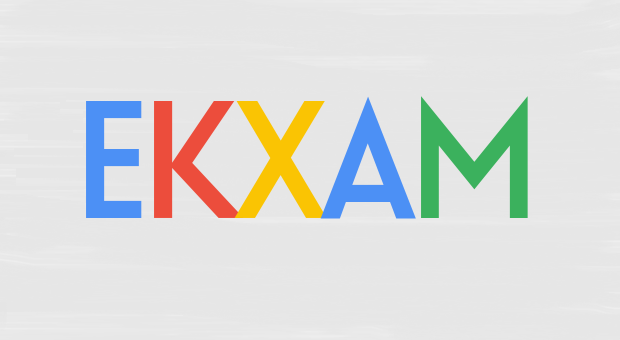Advertisements
Ratings
DRDO CEPTAM
PAPER PATTERN – ELECTRICAL(STA-B)
[2022-2023]
Contents
Paper Structure
| (1) | Total Marks | 150 |
| (2) | Total Number of Questions | 150 |
| (3) | Time Allowed | 2 Hours = 120 Minutes |
| (4) | Medium of Examination | English/Hindi (Bilingual) |
| (5) | Negative Marking | No |
| (6) | Type of Questions | Objective type |
Paper Pattern
| (1) | Total Number of Technical Questions | 100 | |
| 1. | Concern Subject | ||
| (2) | Total Number of Non-Technical Questions | 50 | |
| 1. | General Aptitude | ||
| 2. | General Reasoning | ||
| 3. | General Awareness | ||
| 4. | General Science | ||
| # | Total Marks | 150 |
| DRDO CEPTAM Guide Books |
DRDO CEPTAM Total Information & Guidance
Click below given links to get further information.
DRDO CEPTAM Paper Pattern STA-B Electrical FAQs
What is the paper pattern for DRDO CEPTAM STA-B Electrical exam?
- The DRDO CEPTAM STA-B Electrical exam consists of a single Computer Based Test (CBT) paper. The paper pattern generally includes two sections:
- Section A: This section consists of 50 questions from the subjects of General Awareness, General Intelligence, Reasoning Ability, and General Science. Each question carries one mark.
- Section B: This section consists of 100 questions from the specific trade/discipline (Electrical) chosen by the candidate. Each question carries one mark.
The total duration of the exam is 120 minutes (2 hours), and the total number of questions is 150. The exam is conducted in both English and Hindi languages.
Are there negative marks for wrong answers in the DRDO CEPTAM STA-B Electrical exam?
Yes, there is negative marking in the DRDO CEPTAM STA-B Electrical exam. For every wrong answer, 0.25 marks will be deducted. It is important to attempt questions carefully and avoid guessing if you are unsure about the correct answer.
What is the syllabus for Section B (Electrical) in the DRDO CEPTAM STA-B exam?
The syllabus for Section B (Electrical) in the DRDO CEPTAM STA-B exam generally includes topics such as:
- Electrical Circuits and Networks
- Control Systems
- Power Systems
- Electrical and Electronic Measurements
- Analog and Digital Electronics
- Power Electronics and Drives
- Signals and Systems
- Electromagnetic Fields
- Electrical Machines
- Microprocessors and Microcontrollers
- Communication Systems
- Digital Signal ProcessingIt is important to refer to the official DRDO CEPTAM notification or advertisement for the most accurate and updated syllabus for the exam you are appearing for.
Is there any specific weightage given to certain topics in the DRDO CEPTAM STA-B Electrical exam?
The DRDO CEPTAM STA-B Electrical exam aims to test the candidate's overall knowledge and understanding of the subject. While there may not be specific weightage assigned to individual topics, it is recommended to focus on core concepts and commonly asked topics such as Electrical Circuits and Networks, Control Systems, Power Systems, Electrical Machines, Power Electronics and Drives, and Measurements.
Are there any specific books recommended for DRDO CEPTAM STA-B Electrical exam preparation?
DRDO does not provide specific book recommendations for the CEPTAM STA-B Electrical exam. However, you can refer to standard textbooks and study materials covering the topics mentioned in the syllabus. Some popular books for Electrical Engineering include:
- 'Electric Circuits' by James W. Nilsson and Susan A. Riedel
- 'Control Systems Engineering' by Norman S. Nise
- 'Power System Analysis and Design' by J. Duncan Glover, Mulukutla S. Sarma, and Thomas Overbye
- 'Electronic Devices and Circuit Theory' by Robert L. Boylestad and Louis Nashelsky
- 'Electrical and Electronic Measurements and Instrumentation' by A. K. Sawhney
- 'Power Electronics: Converters, Applications, and Design' by Ned Mohan, Tore M. Undeland, and William P. Robbins
- 'Signals and Systems' by Alan V. Oppenheim, Alan S. Willsky, and S. Hamid Nawab
- 'Electromagnetic Field Theory Fundamentals' by Bhag Singh Guru and Hüseyin R. Hiziroglu
- 'Electric Machines: Theory, Operation, Applications, Adjustment, and Control' by Charles I. Hubert
- 'Microprocessors and Microcontrollers: Architecture, Programming, and System Design' by Krishna Kant


